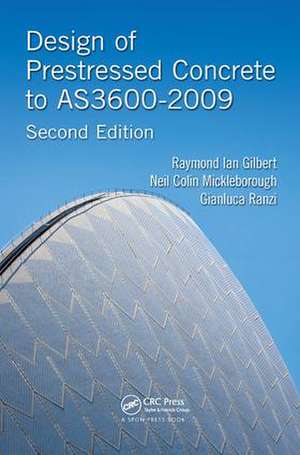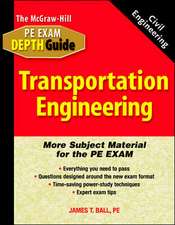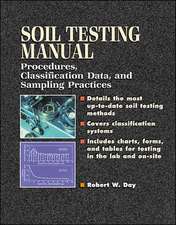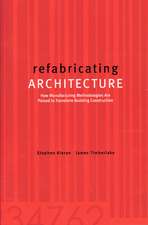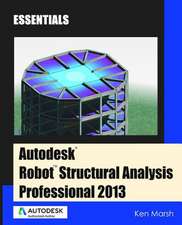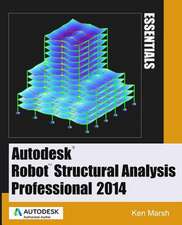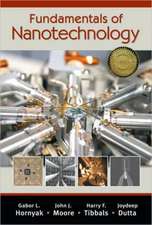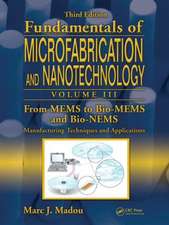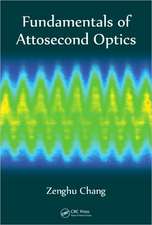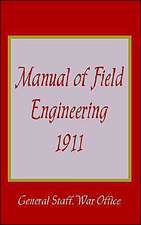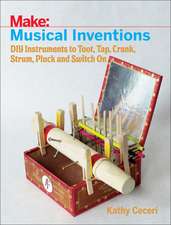Design of Prestressed Concrete to AS3600-2009
Autor Raymond Ian Gilbert, Neil Colin Mickleborough, Gianluca Ranzien Limba Engleză Hardback – 8 iun 2018
Much of the text is based on first principles and relies only on the principles of mechanics and the properties of concrete and steel, with numerous worked examples. However, where the design requirements are code specific, this book refers to the provisions of the Australian Standard for Concrete Structures (AS3600-2009) and, where possible, the notation is the same as in AS3600-2009. A parallel volume is written to Eurocode 2, the European Standard for the Design of Concrete Structures.
The text runs from an introduction to the fundamentals to in-depth treatments of more advanced topics in modern prestressed concrete structures. It suits senior undergraduate and graduate students, and also practising engineers who want a comprehensive guide to the design of prestressed concrete structures. It retains the clear and concise explanations and the easy-to-read style of the first edition, but the content has been extensively reorganised and considerably expanded and updated. New chapters cover design procedures, actions, and loads; prestressing systems and construction requirements; and connections and detailing. The topic of serviceability is developed extensively throughout.
The authors have been researching and teaching the behaviour and design of prestressed concrete structures for more than 35 years, and this updated edition of the book reflects this wealth of experience. The work has also gained much from Ian Gilbe.
| Toate formatele și edițiile | Preț | Express |
|---|---|---|
| Paperback (1) | 604.61 lei 6-8 săpt. | |
| CRC Press – 17 sep 2015 | 604.61 lei 6-8 săpt. | |
| Hardback (1) | 1362.73 lei 6-8 săpt. | |
| CRC Press – 8 iun 2018 | 1362.73 lei 6-8 săpt. |
Preț: 1362.73 lei
Preț vechi: 1661.87 lei
-18% Nou
Puncte Express: 2044
Preț estimativ în valută:
260.75€ • 273.71$ • 216.43£
260.75€ • 273.71$ • 216.43£
Carte tipărită la comandă
Livrare economică 10-24 aprilie
Preluare comenzi: 021 569.72.76
Specificații
ISBN-13: 9781138470224
ISBN-10: 1138470228
Pagini: 716
Dimensiuni: 156 x 234 x 38 mm
Greutate: 1.48 kg
Ediția:2nd edition
Editura: CRC Press
Colecția CRC Press
ISBN-10: 1138470228
Pagini: 716
Dimensiuni: 156 x 234 x 38 mm
Greutate: 1.48 kg
Ediția:2nd edition
Editura: CRC Press
Colecția CRC Press
Cuprins
Basic concepts. Design procedures and applied actions. Prestressing systems. Material properties. Design for serviceability. Ultimate flexural strength. Ultimate strength in shear and torsion. Anchorage zones. Composite members. Design procedures for determinate beams. Statically indeterminate members. Two-way slabs: Behaviour and design. Compression and tension members. Detailing: Members and connections.
Recenzii
"… outstanding in every way. It covers both the fundamentals and the application of prestressed concrete. Clear numerous Examples are helpful to both young readers and professional engineers. Extensive list of references at the end of chapters are useful for further reading."
—Professor Vijaya Rangan, Curtin University
This book is certainly more than a commentary on a code; it is a wide ranging and thorough study of its subject, presenting the material that we have been familiar with for half a century with a concentration on structural forms that are in common use now. This is a mature book and has much to offer to the practicing engineer and academic as well as students.
—Howard Taylor, Magazine of Concrete Research
"A very well written book."
—Muhammad Hadi, University of Wollongong
—Professor Vijaya Rangan, Curtin University
This book is certainly more than a commentary on a code; it is a wide ranging and thorough study of its subject, presenting the material that we have been familiar with for half a century with a concentration on structural forms that are in common use now. This is a mature book and has much to offer to the practicing engineer and academic as well as students.
—Howard Taylor, Magazine of Concrete Research
"A very well written book."
—Muhammad Hadi, University of Wollongong
Notă biografică
Raymond Ian Gilbert is deputy director of the UNSW Centre for Infrastructure Engineering and Safety and has more than 40 years of experience in structural design. He is a specialist in the analysis and design of reinforced and prestressed concrete structures. Professor Gilbert has taught successive generations of civil engineering students in Australia on subjects related to structural engineering, ranging from statics and structural analysis to the design of reinforced and prestressed concrete structures. His research activities are in the field of concrete structures, with a particular interest in serviceability. Professor Gilbert has published six books, including ‘Structural Analysis: Principles, Methods and Modelling’ and ‘Time-Dependent Behaviour of Concrete Structures’ which are also published by CRC Press, and more than 350 technical papers and reports. He was awarded Honorary Life Membership of the Concrete Institute of Australia in 2011.
Neil Colin Mickleborough is the professor of civil engineering and the director of the Center for Engineering Education Innovation at Hong Kong University of Science and Technology. He has been actively involved in the research, development, and teaching of prestressed and reinforced concrete, structural analysis, and tall building and bridge design in Australia, Asia, and the Middle East for the past 30 years. He has acted as an expert design consultant on tall buildings and long span bridge projects in both Dubai and Hong Kong. In addition, he is a chartered structural engineer and a Fellow of the Hong Kong Institution of Engineers.
Gianluca Ranzi is an ARC Future Fellow, associate professor and director of the Centre for Advanced Structural Engineering at the University of Sydney. Gianluca’s research interests range from the field of structural engineering, with focus on computational mechanics and the service behavior of composite steel-concrete and concrete structures, to architectural science.
Neil Colin Mickleborough is the professor of civil engineering and the director of the Center for Engineering Education Innovation at Hong Kong University of Science and Technology. He has been actively involved in the research, development, and teaching of prestressed and reinforced concrete, structural analysis, and tall building and bridge design in Australia, Asia, and the Middle East for the past 30 years. He has acted as an expert design consultant on tall buildings and long span bridge projects in both Dubai and Hong Kong. In addition, he is a chartered structural engineer and a Fellow of the Hong Kong Institution of Engineers.
Gianluca Ranzi is an ARC Future Fellow, associate professor and director of the Centre for Advanced Structural Engineering at the University of Sydney. Gianluca’s research interests range from the field of structural engineering, with focus on computational mechanics and the service behavior of composite steel-concrete and concrete structures, to architectural science.
Descriere
Retaining the clear and concise explanations and the easy-to-read style of the first edition, this book builds on the principles of mechanics and the properties of concrete and steel, with numerous worked examples. The scope of the work ranges from an introduction to the fundamentals of prestressed concrete to in-depth treatments of the more advanced topics in modern prestressed concrete structures. Where the design requirements are code specific, the book refers to the provisions of the Australian Standard for Concrete Structures (AS3600-2009).
